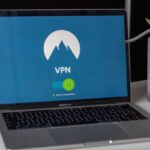In today’s fast-paced digital world, being digitally literate is more important than ever before. But what exactly does it mean to be digitally literate? In a nutshell, digital literacy encompasses a range of skills and competencies that allow individuals to navigate, evaluate, and create information effectively using digital technologies. Let’s delve deeper into what being digitally literate entails.
The Basics of Digital Literacy
At its core, digital literacy involves the ability to use digital tools and technologies to access, analyze, and communicate information. This includes skills such as navigating the internet, using search engines effectively, and evaluating the credibility of online sources. In today’s information age, being able to discern reliable information from misinformation is a crucial skill, and digital literacy plays a key role in this process.
Digital literacy also encompasses skills related to communication and collaboration in digital environments. This includes the ability to use email, social media, and other digital platforms to communicate effectively and professionally. Understanding how to protect one’s privacy and security online is another important aspect of digital literacy, as individuals need to be aware of potential risks and how to mitigate them.
The Importance of Critical Thinking
One of the key components of digital literacy is critical thinking. In a world where information is abundant and easily accessible, being able to critically evaluate and analyze that information is essential. Digital literacy empowers individuals to question, analyze, and interpret information presented to them online, enabling them to make informed decisions and form well-reasoned opinions.
Critical thinking in the digital realm involves not only evaluating the content of information but also considering the source, context, and potential biases that may be present. By honing their critical thinking skills, individuals can become more discerning consumers of digital content and better equipped to navigate the complexities of the online world.
Adaptability and Lifelong Learning
Another important aspect of being digitally literate is the ability to adapt to new technologies and tools. The digital landscape is constantly evolving, with new technologies emerging at a rapid pace. Being digitally literate means being open to learning and mastering new tools and platforms as they become available.
Lifelong learning is a fundamental component of digital literacy, as individuals must continuously update their skills and knowledge to stay relevant in a digital-first world. This requires a growth mindset and a willingness to embrace change and innovation.
Empowerment and Participation
Digital literacy is not just about consuming information—it also includes the ability to create and share content in digital formats. This aspect of digital literacy empowers individuals to participate actively in online communities, express their ideas and opinions, and contribute to the digital conversation.
By developing skills in digital content creation, individuals can harness the power of digital tools to amplify their voices and engage with a global audience. From blogging and podcasting to video production and social media engagement, digital literacy opens up a world of possibilities for creative expression and communication.
The Future of Digital Literacy
As technology continues to reshape our world, the importance of digital literacy will only grow. In an era where digital skills are increasingly essential for success in education, work, and everyday life, being digitally literate is no longer a luxury—it is a necessity.
By equipping individuals with the skills and competencies needed to thrive in a digital world, digital literacy holds the key to unlocking new opportunities, fostering innovation, and empowering individuals to navigate the complexities of the digital age. Embracing digital literacy is not just about mastering technology—it is about embracing a mindset of curiosity, adaptability, and lifelong learning that will serve individuals well in an ever-changing world.
In conclusion, being digitally literate is about more than just knowing how to use a computer or navigate the internet. It is about developing a set of skills and competencies that enable individuals to thrive in a digital world, critically evaluate information, adapt to new technologies, and participate actively in digital communities. As technology continues to shape our lives, digital literacy will be increasingly vital for success and empowerment in the digital age.





